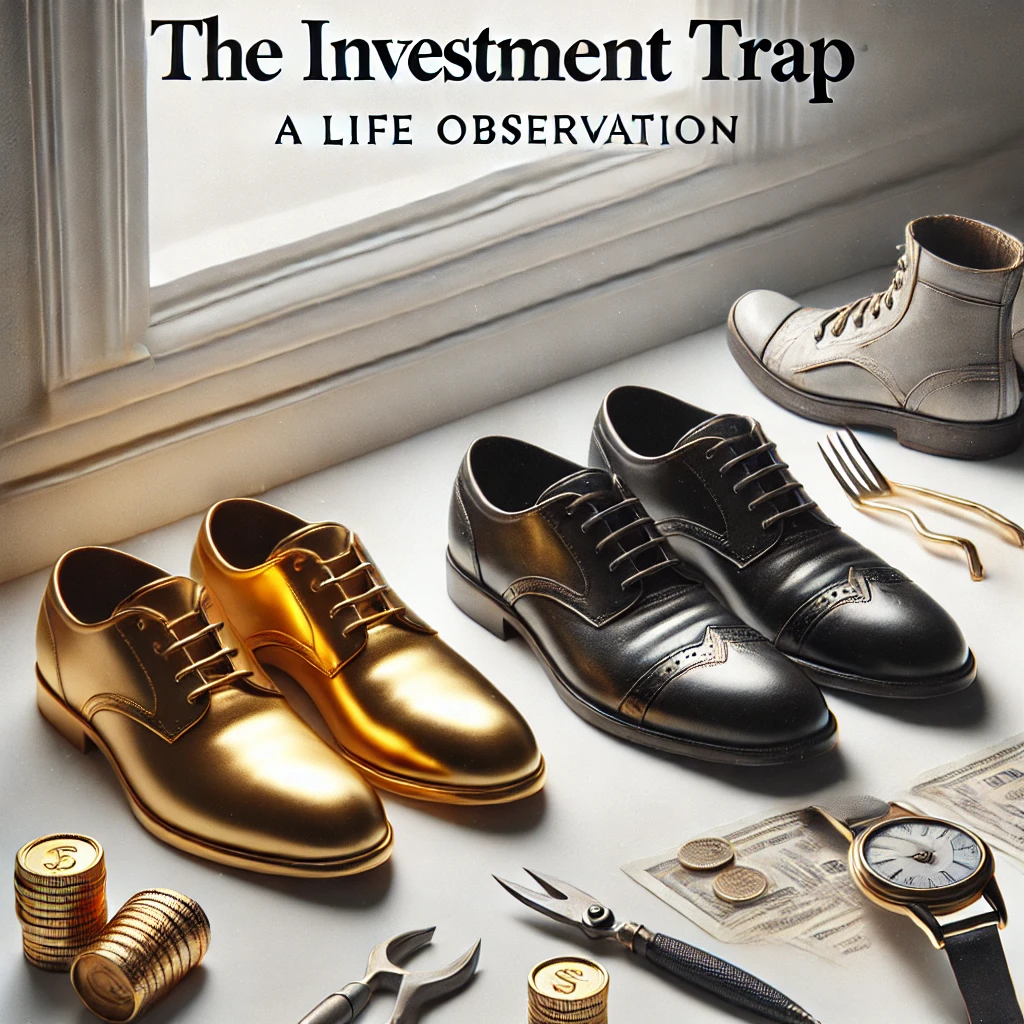The Investment Trap: A Life Observation
As a financial planner, I’ve spent years observing the patterns of human behavior when it comes to money management and investing. One observation stands out, perfectly encapsulated by the phrase:
“Every shoe salesman thinks you need a new pair of shoes”

Imagine walking into a shoe store. The salesman, with a bright smile, assures you that your life will be incomplete without the latest pair of shoes. He points out the flaws in your current pair and emphasizes the superiority of the new ones. The logic is simple: his job is to sell shoes, and he’s an expert at making you feel the need for a new pair.
This scenario is remarkably similar to the world of investing: Every day, we are bombarded with advice from various “financial salesmen” – the media, self-proclaimed gurus, and even well-meaning friends. They tell us we need the latest hot stock, the newest investment trend, or the next big thing in cryptocurrency. They paint a picture of incredible returns and financial freedom, just like the shoe salesman promises comfort and style.
And here’s the pitfall: acting on every new piece of advice without a clear strategy is like constantly buying new shoes without ever wearing them out. It’s easy to fall into the trap of thinking that the next big thing will solve all our financial woes.
“True financial success doesn’t come from chasing trends. It comes from a disciplined approach to financial planning and objective tracking over time”
Take Warren Buffett, for example. His strategy isn’t about finding the next flashy investment. It’s about patience, consistency, and the profound power of sticking to the strategy. Over decades, this approach has built immense wealth and earned unparalleled trust. In contrast, even the most impressive short-term gains can’t compare to the reliability and growth achieved through long-term compounding.
So, how can we avoid the pitfalls of following every new financial trend? Here are a few tips:
- Develop a Long-Term Strategy: Focus on your financial goals and create a plan that aligns with them. Stick to it, even when tempted by new trends.
- Understand Before You Invest: Make sure you understand any investment fully before committing your money. Knowledge is your best defense against making impulsive decisions.
- Diversify Wisely: Diversification helps manage risk. However, it should be done thoughtfully, not just by jumping on every new opportunity.
- Embrace Patience: The most successful investors understand that wealth is built over time. Patience is key to allowing your investments to grow through compounding.
Remember, the next time someone tells you about a must-have investment, think of the shoe salesman. Evaluate whether you genuinely need it or if it’s just another distraction from your long-term financial journey.

















